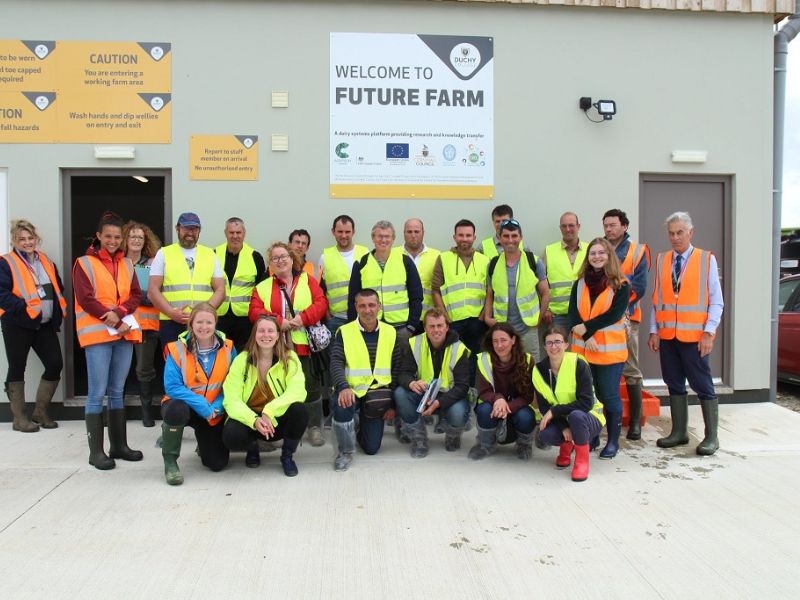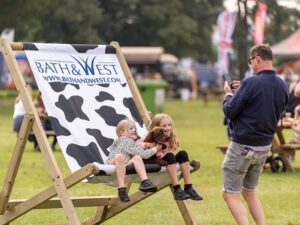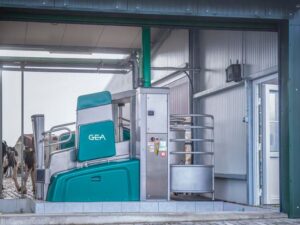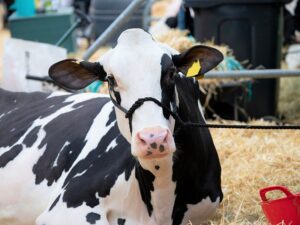A two-year project involving partners in the UK and France has recently completed work on low carbon dairying. It looked at practices including cow diet changes, multi-species grassland and agroforestry, with the former having potential to reduce carbon footprints by 10% alone.
The Agriculture bas Carbone for Dairy farms (ABCD) project, an Interreg project co-funded by the EU, included Finistère Council, the Chamber of Agriculture of Brittany and Cornwall Council – which partnered with Duchy College to deliver the work. It was funded by the European Regional Development Fund (ERDF), to the sum of €500,000 (£440,000), with Cornwall Council receiving €160,000 (£140,600) from the EU fund. The project ran from March 2021 to March 2023.
“The first part of the project aimed to reduce dairy farms’ carbon footprint by 10%,” said Gaid Carval, economic growth officer at Cornwall Council. “It looked at cows’ diets and how to formulate them to reduce carbon footprint. In Cornwall, the trials were led by Duchy College at its Future Farm.”
The team carried out the trials in October 2022 and January/February 2023 with cows from a 196-head herd, block-calved from August to October. They used two groups of 62 cows in the trial. These were balanced by parity and predicted milk yield (butterfat and protein), were milked twice a day and fed five times a day using an automated robotic feeding system (Trioliet).
Concentrate blends were formulated with or without soya, with equivalent levels of crude protein (22.3%), metabolisable energy (14.8MJ ME/kg) and fibre (5.11%). Where soya was excluded from blends, rapeseed meal was used instead.
“Milk production, milk quality and body condition scores were unaffected with a ration containing no soyabean meal, compared with a diet containing soya,” said research and programme manager at Duchy College, Paul Ward.
“Using this soyabean meal-free ration was estimated to deliver a significant reduction of 80g/litre of milk CO2e (8.6%) in carbon footprint.
“Assuming the herd was making progress on other measures like improved fertility, first calving optimisation, better health and use of home-grown protein, total carbon footprint would fall by 10%,” said Mr Ward. But longer term research is needed to confirm the estimates.
The second aspect of the project involved supporting producers in adopting new low carbon practices on farm. “Duchy College led this in Cornwall, holding meetings with farmers,” said Ms Carval. “Saputo Dairy, Trewithen Dairy and Rodda’s Dairy were also involved and useful in helping us to reach farmers.
“We were aiming to reach as many farms as possible and support them in transitioning to low carbon practices,” she added. A survey carried out by ABCD early in the project revealed that ‘how to complete a carbon footprint’ was the most popular training requirement topic, in relation to carbon management (56%). Manure and fertiliser management came second (51%) and soil management, third (43%).
In a further knowledge exchange activity, 15 farmers from Cornwall visited farms in Brittany in August 2022, and 12 French farmers came to Cornwall in June 2022.
A few ideas concerning low carbon practices – some implemented and others being considered – were shared during the Cornwall/French exchange visits:
- Installation of small anaerobic digestor plants on small farms without huge cost is enabling French farmers to produce some of their energy requirements.
- Multispecies grasslands could benefit soil carbon storage and drought-resistant species could help to maintain grass growth during hot and dry summers.
- While agroforestry is more developed on French farms than in the UK, the Cornish farmers could see its benefits in terms of carbon storage, without negatively affecting crop growth, and reducing the impact of drought.
- Farmers were also interested in the potential of genetics to address carbon footprints.
French farmers also visited a Cornwall Council-owned farm, which had a pilot site for fugitive methane capture led by clean energy firm, Bennamann. Once captured, the methane is refined and then used to replace fossil fuel in tractors, generators and other vehicles on the farm and in Cornwall Council’s road maintenance fleet. This approach has the double benefit of reducing the methane emitted into the atmosphere as well as cutting fossil fuel use. “This could enable small farmers to have access to this technology, whereas before, only big farms could afford to install it,” said Ms Carval.
As the project ends, Ms Carval reflected on its achievements. “It has led to good trial results. Also, a lot of discussions and opportunities to try new practices on farms. There have also been opportunities to build links, not only between farmers, but also farming researchers in France and the UK,” she noted.
“The project partners from France and the UK are willing to carry on working on low carbon issues and solutions, making sure that dairy farmers are part of the solution to a low carbon future.”
For more information visit: Agriculture Bas Carbone for Dairy Project – Cornwall Council
Editor’s notes
About the Interreg FCE program
Interreg France (Channel) England is an EU programme created to foster economic development. It focuses in the south and east of the UK and north of France, funding innovative projects which have a sustainable and economic benefit.
Objectives include: supporting innovation, improving attractiveness of the Channel area and developing low carbon technologies.
Contact: Marianne Curtis: 07443 747808
Gaid Carval
ABCD project manager at Cornwall Council
07736618449






